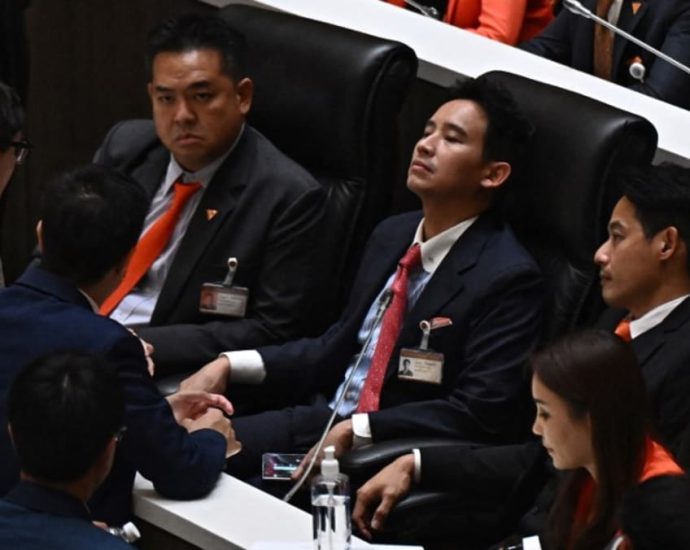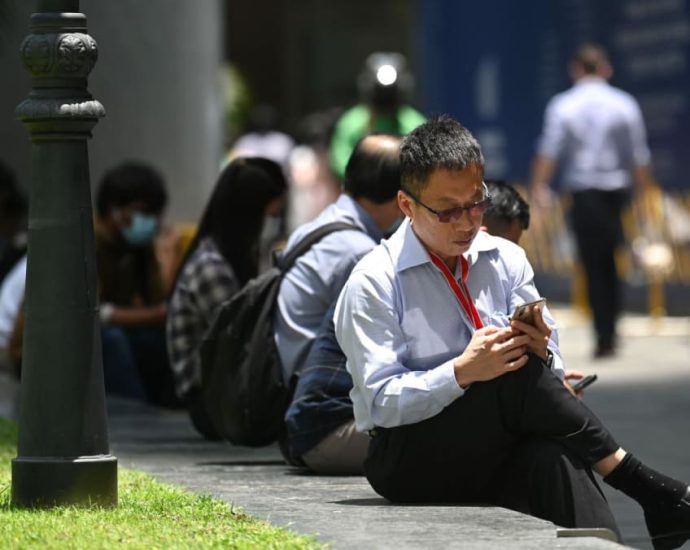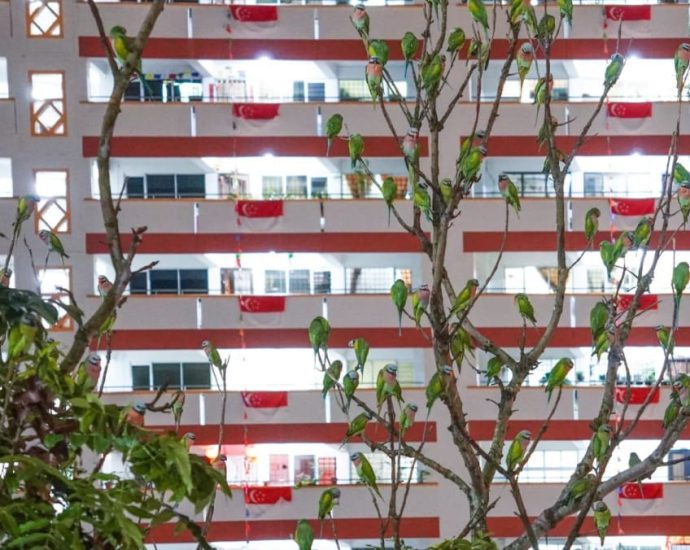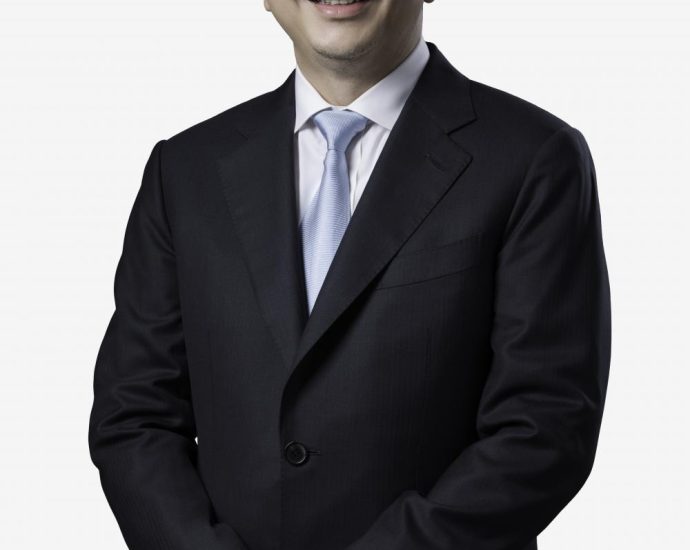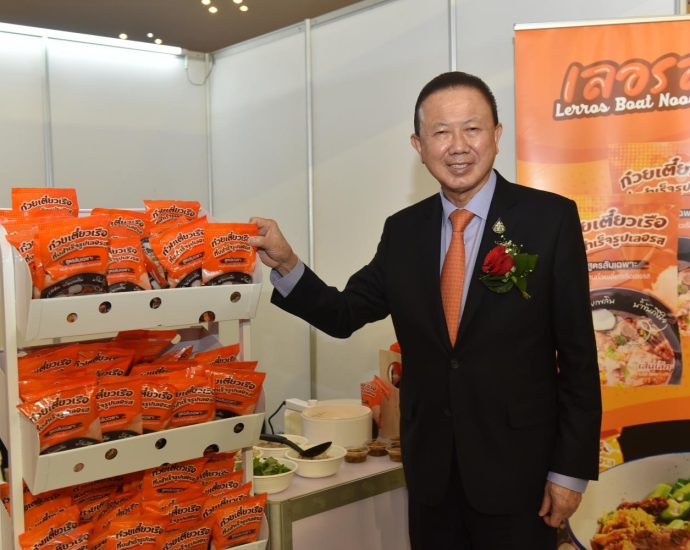Phangnga airport ‘needed’

Phangnga airport study ‘must carry on’
PUBLISHED : 17 Jul 2023 at 07:07
The Joint Public and Private Sector Consultative Committee (JPPSCC) in the Andaman provinces has urged Airports of Thailand (AoT) to continue its feasibility study on Phangnga Airport.
A meeting of the JPPSCC in the Andaman provinces of Krabi, Trang, Phangnga, Phuket, Ranong and Satun was held recently to continue talks with Phuket Airport after the AoT decided to defer the project.
Jaran Pandang, deputy director of Phuket Airport, said the AoT’s policy, planning and budget committee decided to defer the plan to build Phangnga airport because the AoT must abide by a cabinet resolution from August 2022.
The cabinet ordered the AoT to oversee the management of Udon Thani, Buri Ram and Krabi international airports and suspended the plan to build an airport in Phangnga.
The AoT received an 11-million-baht budget in November 2020 for a preliminary feasibility study for the airport.
The terms of reference were set in May 2021. The investment needed is around 100 billion baht and the airport could be complete in 2027. But the project has been suspended since last year.
Lertsak Ponklin, president of the Phangnga Tourism Association, urged the JPPSCC to ask the AoT to keep the project going as it could take up to 10 years to build the airport.
Phuket airport has reached its full capacity of 14 million passengers a year. If it is expanded, it can handle up to 17 million, still below its peak period when it handled about 18 million passengers prior to the Covid-19 pandemic, he said. “I cannot imagine when the economy picks up and when it is high season, how crowded Phuket airport will be. So, we need to prepare,” Mr Jaran said.
How long does it take for a swallowed coin, battery or magnet to pass through a childâs body?

So, what has the study found? According to Assoc Prof Aw, 50 per cent of the button batteries were passed out by Day 4 and 100 per cent by Day 7. “For coins, 50 per cent were passed out by Day 8 and 100 per cent by Day 37,” she said.
“This means we can potentially advise parents that they can wait till Day 30 to see if the coin has been passed out spontaneously, and we do not have to see the child unless the coin has not been passed out after five weeks. But for children who swallowed batteries, we may want to see them by Day 7,” she said.
HOW LONG DO OBJECTS TAKE TO BE PASSED OUT ANYWAY?
“The way swallowed objects pass is very similar to the passage of food,” said Assoc Prof Aw. But because these objects are not digested, “there are certain parts of the gastrointestinal tract” where “these objects are more likely to get stuck”.
These are usually the “transition points” such as where the oesophagus connects to the stomach, the stomach to the small intestine and the small intestine to the large intestine, she said.
If the object is not lodged in the throat but progresses down the oesophagus, it would enter and exit the stomach, and pass into the small intestine within four to six hours. “However, it is also possible that it may take more than one to two days for it to pass out of the stomach. For safer objects such as a coin, we can sometimes wait up to several weeks before active intervention,” said Assoc Prof Aw.
Commentary: The lack of democracy in Thailand has been revealed
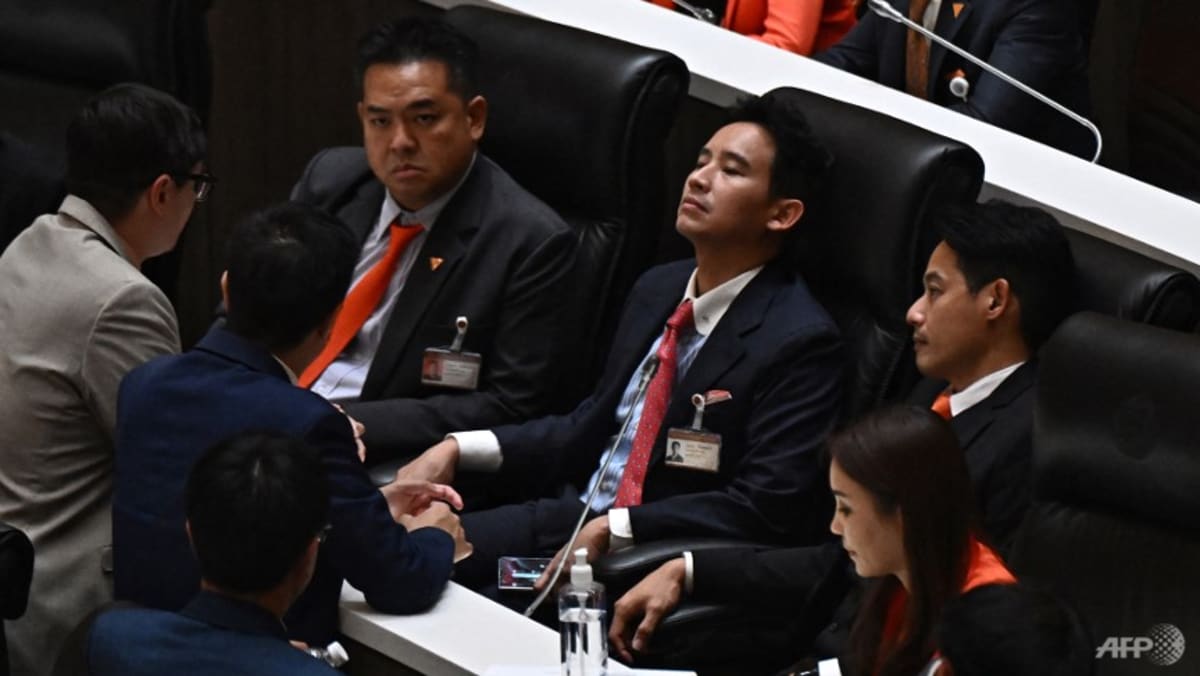
VOICE OF THE PEOPLE IGNORED?
Looking towards the medium to long term, the implications of these developments extend far beyond party politics. They have the potential to ignite substantial frustration and discontent, particularly among those who perceive Pita’s failure to secure the necessary support as evidence that the democratic process has been compromised by actors and institutions that prioritise their own interests over the popular will.
This growing disillusionment among the public may intensify calls for political reforms and a thorough re-evaluation of the role and accountability of various power structures within the political system, such as the Senate, the Constitutional Court, and the Election Commission.
However, the absence of a clear and effective pathway for formally addressing these grievances poses a significant challenge. For instance, to revoke the Senate’s authority to jointly select the prime minister, amending Section 272 of the Constitution is necessary. But amending the Constitution requires the backing of at least one-third of senators, as stipulated by Section 256.
The limited avenues for meaningful engagement and redress can further erode public trust in the existing political institutions, leading to widespread mobilisation and street protests with ever-increasing frequency and intensity. That said, however, historical precedents have shown that social unrest and emergencies are often used as a pretext for the military to intervene in the name of maintaining peace and order.
In conclusion, the political future of Thailand hangs in the balance. If the selection process fails to produce a successful candidate for the role of Prime Minister, Section 272 (2) of the 2017 Constitution allows for the possibility of an outsider being considered as a potential candidate for the position. This scenario remains unlikely due to stringent requirements; moreover, there is no guarantee that the candidate would serve as a neutral arbiter or independent third party.
Ultimately, these developments underscore the stark reality that leaders in Thailand are not elected by the will of the people but rather permitted to rise to power with support or at least acquiescence of the conservative establishment. Now that the true nature of democracy, or the lack thereof, in Thailand has been revealed, it remains to be seen what actions and measures will be taken by the Thai people whose voice and choice seem to have been trampled upon.
Napon Jatusripitak is Visiting Fellow in the Thailand Studies Programme at ISEAS – Yusof Ishak Institute, and PhD Researcher at Northwestern University. This commentary first appeared on the Institute’s blog, Fulcrum.
Commentary: Gone are the days when workers can rely on a single job for their entire career
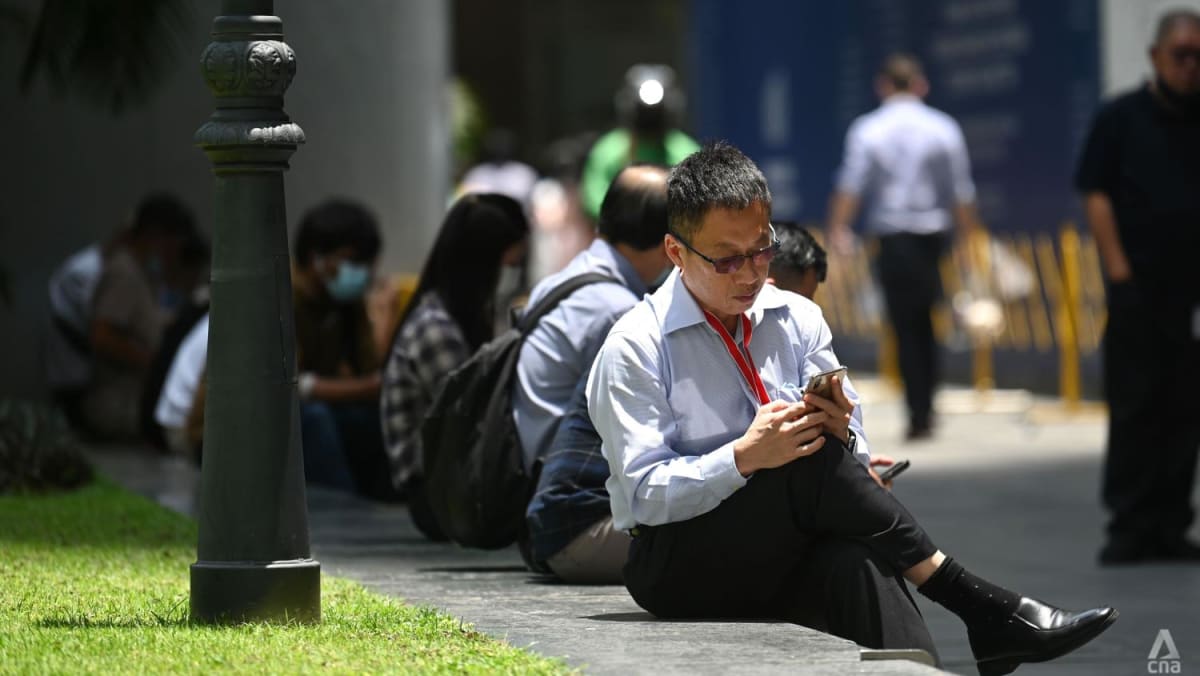
A survey of 1,000 US executives by Resume Builder in January found that 66 per cent of respondents had taken a salary cut in the past six months, with 94 per cent saying it was to prevent or reduce layoffs.
All options put a mental and emotional strain on workers and those around them.
FOCUS ON CAREER SECURITY, NOT JOB SECURITY
However, instead of worrying about job security, how about striving for career security?
Job security is all about making sure your job will still be there until the day you retire. In today’s volatile world of cheap labour and artificial intelligence, being anxious about this is futile – no job is guaranteed.
On the other hand, by making sure that your skills are relevant and honed, and your knowledge current and deep, any company would love to have you on their team. This is something that everyone can work towards.
Being so good at what you do, that you are constantly in demand by the market is what we define as having career security. You will no longer need to worry about whether your company has a job for you – if you have career security, you will always have options at your disposal, both internally and externally.
The Big Read: Can public rental and BTO flats co-exist harmoniously in the same HDB block?
On one hand, some believe that separating those living in rental flats from other HDB developments would lead to a gentrification of some areas in Singapore. On the other hand, there are also questions whether housing rental residents together with those who are buying prime location homes could inadvertently backfire.Continue Reading
Not leaves but birds: Parakeets occupy trees in Choa Chu Kang as population grows
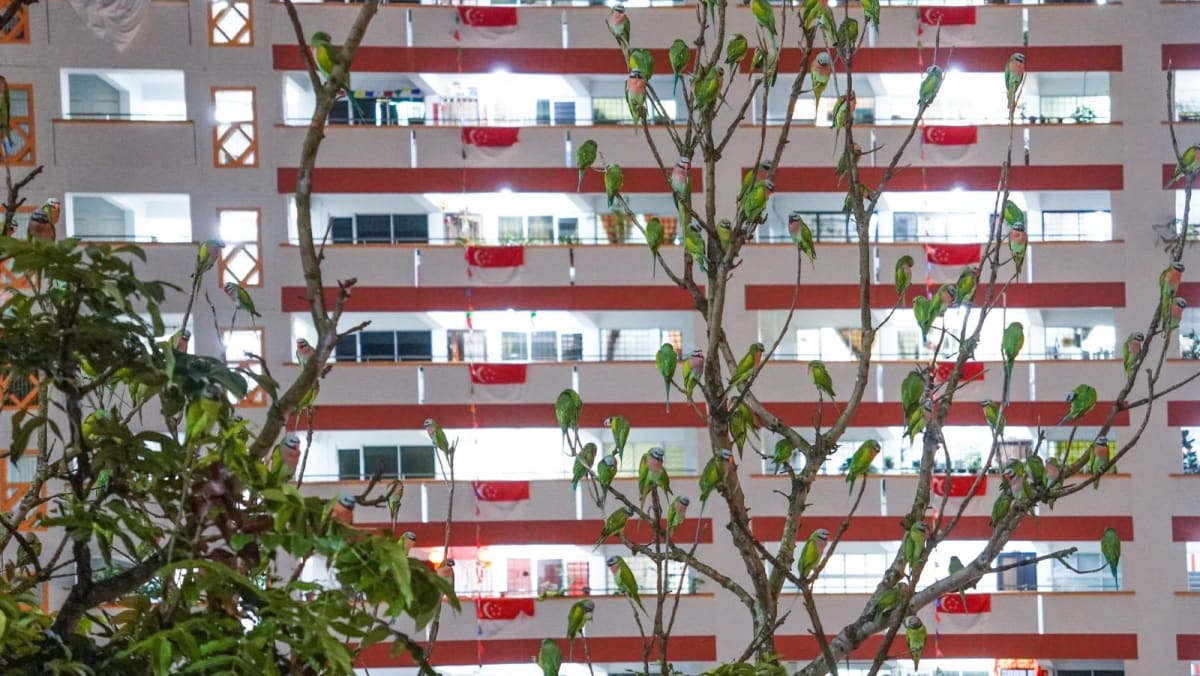
LARGE FLOCKS IN HOUSING ESTATES
On why they roost in specific areas in the west of Singapore, Dr Yong suggested that it was because of the proximity to forested areas.
“The birds are able to thrive in secondary woodlands in Singapore, like those you see in the Rail Corridor, Tengah, Kranji and Lentor. They can find food and nesting resources in these areas. And these woodlands are not so different from their open forest habitat in Cambodia or Thailand.”
Their large numbers have posed problems in Choa Chu Kang, where the town council and NParks caught and culled some birds in November last year, as reported by the Straits Times.
In response to CNA’s queries, NParks said it received 79 cases of feedback on parakeets between 2020 and 2022. About half of these were sightings and reports of animals requiring rescue.
As with invasive species, a hike in the number of red-breasted parakeets has implications for the ecosystem.
“Being a non-native species, the red-breasted parakeets may negatively impact native biodiversity when present in large numbers, by competing with our native bird species for food and nesting sites,” said NParks’ group director of wildlife management Ryan Lee.
“They may also indirectly affect native biodiversity through the transmission of exotic diseases and parasites.”
Dr Yong agreed, saying that red-breasted parakeets compete with local species such as hill mynas, long-tailed parakeets, hornbills and common goldenback woodpeckers for tree cavities to nest.
“There’s heavy competition for the nest holes. So many birds need the nest holes but so few bird species build (them).”
Dr Yong cautioned about another non-native parakeet species that appeared to be an “emerging problem”. The monk parakeet, also green in colour, has colonies in Pasir Ris and Changi and is a highly invasive species, he said.
While non-native parakeets may be a threat to local birds, they do not enter human premises to scavenge for food.
“So from a human disturbance point of view … it is not as major an issue as crows and mynas, but from an ecological point of view there are real and tangible problems,” said Dr Yong.
“The (red-breasted) parakeets have reached a level of population that they can never be eradicated. They are established in the Singaporean ecosystem permanently and have spread to nearby areas of Malaysia.”
NParks cautioned the public against releasing animals or pets into the wild. It also said that releasing an animal into a nature reserve or a waterway that flows into or through a nature reserve is an offence.
New Zealand Prime Minister says Pacific region more contested, less secure
AUCKLAND: New Zealand Prime Minister Chris Hipkins said on Monday (Jul 17) that the Pacific region is becoming more contested, less predictable, and less secure as China becomes more assertive. “China’s rise and how it seeks to exert that influence is also a major driver of the increasing strategic competition,Continue Reading
Surfing the global electric vehicle wave
Arsjad Rasjid, chairman of Asean Business Advisory Council (Asean-BAC) and chairman of the Indonesian Chamber of Commerce and Industry (Kadin), has shared his opinions about the electric vehicle industry in which Thailand and Indonesia can work together to establish an efficient and resilient supply chain in Southeast Asia for the global EV industry.
How do you perceive Thailand’s remarkable surge in electric vehicle (EV) registrations and the role of public-private partnerships and government policies in driving this growth, and what lessons can Indonesia draw from Thailand’s success to enhance its own electric vehicle market?
Thailand has reported a surge in EV registrations, with over 32,000 EVs registered in the first five months of this year alone. This is equivalent to a 474.43% rise year-on-year.
In Indonesia, with a population of more than 270 million, we sold just 10,000 EVs in 2022 and predict that sales this year will reach only around 50,000 units.
I believe this is a result of public-private partnerships and supportive government policies, which comprise an 80% tax break that came into effect in November 2021 and will continue until Nov 10, 2025, and subsidies ranging from 70,000 baht to 150,000 baht (US$2,000 to US$4,350) for EVs that meet the required criteria from May 2022.
This enables automakers to narrow the price gap between EVs and traditional vehicles, making EVs more accessible and attractive to consumers. As a result, automakers such as BYD, GWM, SAIC, Hozon, and Tesla have entered the market, offering a more comprehensive range of choices for consumers.
From this, we can see a diverse market where the single most popular model, the top three models made up of BYD ATTO 3, Neta V, and Tesla Model Y, only have a market share of 37.5%, 16.9%, and 10.8% respectively.
The Thai model of EV adoption serves as an excellent example for other countries, including Indonesia.
By studying and adapting certain aspects of Thailand’s approach, we can accelerate the growth of our own EV market.
Considering Thailand’s strong position in the automotive market and its attractiveness to international automakers, particularly for electric vehicles, how do you envision the collaboration between Indonesia and Thailand in the production of EVs and automotive batteries, and what potential benefits can be derived from forming joint ventures and partnerships between Indonesian and Thai companies to strengthen the automotive supply chains in both countries and establish a robust EV industry in Southeast Asia?
We recognise the strategic opportunity and potential of collaboration with the Thai automotive industry. Thailand’s strong position in the automotive market, coupled with Indonesia’s abundant resources such as bauxite (world’s sixth-largest reserves) and nickel (world’s largest producer), presents a perfect opportunity for synergy and mutual benefits.
Thailand is the 11th largest automobile producer in the world and 2nd largest pickup truck producer. Thailand has emerged as the preferred production site for about 2,200 automotive parts and accessories manufacturers as well as international automakers including renowned brands like Mercedes-Benz, Toyota, and GWM, particularly for electric vehicles (EVs).

Arsjad Rasjid, Chairman of ASEAN Business Advisory Council (ASEAN-BAC) and Chairman of Indonesian Chamber of Commerce and Industry (KADIN)
Additionally, we are seeing significant investments in Thailand including from the state-owned oil company, PTT, which has committed 93.5 billion baht (US$2.6 billion) to prepare for EV production.
In this sense, Indonesia shares a common interest with Thailand in the production of electric vehicles and automotive batteries. Forming joint ventures and partnerships can significantly strengthen both our automotive supply chains. By integrating our resources, technology, and production capabilities, we can establish an efficient and resilient supply chain in Southeast Asia for the global EV industry.
With the integration of Indonesia’s Quick Response Code Indonesian Standard (Qris) and Thailand’s PromptPay QR opening up significant opportunities for micro, small, and medium enterprises (MSMEs) and tourism businesses, how do you envision this efficient and secure payment solution expanding its reach to a broader consumer base in both countries, and what measures can be taken to further promote the adoption of cashless transactions through the Qris system, fostering increased collaboration and economic activity between Indonesia and Thailand?
The integration of our Qris system with Thailand’s PromptPay QR system opens significant opportunities for micro, small, and medium enterprises (MSMEs) and tourism businesses.
As of December 2022, there are 28.7 million Qris merchants and 90% are MSMEs.
Qris offers an efficient and secure payment solution, expanding its reach to a broader consumer base in Thailand and vice versa. Simultaneously, consumers in both countries will enjoy greater accessibility to a wide range of products. The integration of the Qris system with the PromptPay QR system in Thailand is a source of pride for us, as it aligns with our vision of fostering regional economic integration within Asean.
Establishing an Asean-wide QR Code payment system has been one of our legacy projects at Asean-BAC, and this achievement marks a significant step toward that goal.
Early data on Qris transactions between Indonesia and Thailand demonstrates the promising potential for increased collaboration and economic activity. By the end of 2022, Indonesian QR transactions in Thailand had reached an impressive 14,555 times, amounting to approximately Rp8.54 billion (19.76 million baht).
Conversely, Thai QR transactions in Indonesia totalled 492 times, with a value of around Rp114 million (260,000 baht). The difference in transaction volumes and values reflects the varying levels of awareness, adoption, and market penetration of the QR payment system, highlighting the potential for further cooperation to promote the use of cashless transactions.
Thailand just finished its election; what lessons can be learned from the post-election period in Thailand that can be applied to the upcoming election in Indonesia?
The recent post-election period in Thailand offers several lessons that can be applied to the upcoming election in Indonesia. Here are a few key takeaways. We can see a good collaboration between two parties that are actually competitors, namely the Move Forward Party and the Pheu Thai Party. In the end, they formed two important coalitions and won the election. Learning from this, competition and rivalry do exist, but it cannot be denied that behind the competition, there is still an opportunity to stand together and work toward a better future for the nation.
In this regard, Indonesia can also learn from Thailand. “Bertanding untuk Bersanding“, or “compete to collaborate”, becomes the key to the upcoming elections in Indonesia. Ultimately, all the competition is for the benefit of the nation’s future, so we must all work together to build the country.
We can compete and challenge each other in the democratic process, but in the end, we must unite. We must remember that we have the same goal — the welfare of the Indonesian people. That is what is important and what we must hold together. Instead of being in conflict, wouldn’t it be better for us to join hands, stand together to preserve what we already have, and improve what is not yet perfect? Therefore, let’s compete to collaborate.
Truckers urge speedy govt formation

PUBLISHED : 17 Jul 2023 at 04:30
A timely installation of a new government could fend off an imminent rise in diesel oil prices, according to a freight transport association.
Freight transport businesses have voiced their growing concerns with the upcoming plan by the caretaker government to discontinue the 5-baht waiver on the diesel excise tax on Thursday, a measure designed to keep transport and living costs down.
The government said it would not renew the waiver to avoid leaving the financial burden resulting from the policy to its successor.
The Land Transport Federation of Thailand earlier warned that scrapping the waiver would pressure businesses to pass on increasing transport costs to consumers.
Somkid Kingkrodklang, chairman of the federation in the Northeast, said his operators are waiting to see how the diesel price will go up if and when the waiver is lifted.
If the diesel price rises progressively, so will freight costs, he said.
He said the freight operators were already struggling in the face of high diesel prices. The hardship will only worsen if the waiver is no longer there.
Many truck businesses are in a dire strait because freight delivery jobs are few and far between at the current onset of the crop season. Freight transport orders will start coming in once the crops are harvested, which could be months away.
“Our hope is the new government will be in place sooner rather than later.
“The new administration can step in and look closely at how energy prices are structured to make them fairer,” Mr Somkid said.
The longer the uncertainty in selecting a new prime minister in parliament persists, the longer it will take to form a new government, which can pile pressure on freight transport costs, according to him.
He said the base cost of freight transport currently stands at about 500 baht per tonne of freight delivered per trip on average, which is bearable. However, every 1-baht hike in diesel oil price could send the base cost up by an additional 50 baht per tonne.
Pheu Thai power bid gains pace
Business backs party to boost economy

The private sector has expressed support for the Pheu Thai Party to lead the formation of a new government, saying its economic policies will help turn the economy around.
Sanan Angubolkul, chairman of the Thai Chamber of Commerce, told the Bangkok Post that confidence in the economy will receive an immediate boost if Pheu Thai can form a government with their candidate as PM and seven coalition parties in agreement under the MoU they signed.
“Pheu Thai has experience in running the country, with several of its policies having been implemented successfully.
“The party also has the personnel with the capability and expertise to manage the economy,” Mr Sanan said.
“The Thai Chamber of Commerce believes that if Pheu Thai leads the formation of the new government, its economic policies will propel the country forward, particularly those that stimulate growth and reduce inequality,” he said.
The Move Forward Party has said it will be willing to let its coalition partner Pheu Thai have a go at forming the government if its own bid to get its leader Pita Limjaroenrat elected as PM fails.
Mr Sanan also urged the next government to address problems that require immediate action, especially bread-and-butter issues affecting people’s daily lives, as well as assisting small-and-medium-sized entrepreneurs.
The government also should look to reduce living expenses and increase personal income so people have more money to spend, he said.
Furthermore, SMEs need easy access to sources of funding to rebuild their businesses after Covid-19, Mr Sanan said, adding the government should also pursue digital transformation to improve public services and ensure transparency.
The government must also come up with plans to deal with a possible drought due to the El Niño weather phenomenon that could affect the agricultural sector, he said.
“So far, farm produce has risen in price. Global demand for food has also increased, which presents a good opportunity for Thailand,” he said.
The government and the private sector should integrate water management plans to ensure sufficient water supplies for the agricultural and industrial sectors, Mr Sanan said.
He also urged the government to step up disbursement of state funds that remain unspent as quickly as possible and roll out measures to inject cash into the economy to stimulate growth during the latter half of the year.
Charoen Laothamatas, president of the Thai Rice Exporters Association, said the new government should prioritise the agroindustry by improving crop strains and planting methods, instead of just focussing on pricing.
“Several countries have attached importance to tackling global warming. We must ensure the planting methods will not produce methane which contributes to the problem,” he said.
“Thailand must have a clear policy on the environment and global warming, otherwise Thai exports may face trade protectionism from other countries,” he said.
Srettha Thavisin, one of Pheu Thai’s three prime minister candidates, assured that Pheu Thai would deal with economic problems that affect people’s daily life once it becomes the government.
“Pheu Thai will tackle the problem head-on regardless of whether it is the leader of a coalition or part of it. Easing people’s hardship is the overriding priority,” Mr Srettha said.
Pheu Thai’s election pledges included a 10,000-baht “digital money” giveaway in which every Thai aged 16 and older will get a new savings account and a digital wallet connected to his or her ID.
The 10,000-baht giveaway is aimed at stimulating spending in local communities in the first six months, with the help of blockchain technology that will ensure the money is spent within a 4-kilometre radius of the recipients’ registered address in an effort to spur the local economy.



